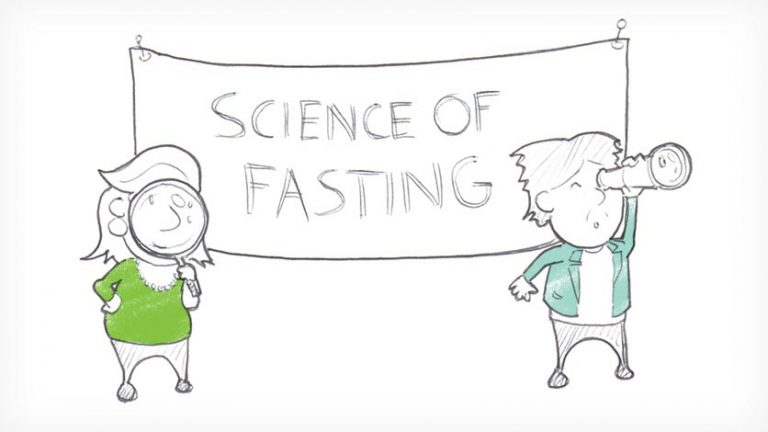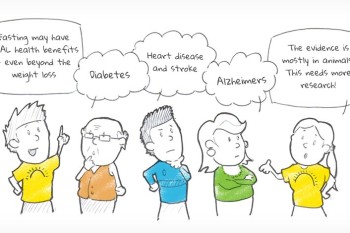Fasting is not a new idea. People have been fasting for centuries and the scientists of the 1800s and 1900s were interested in what happens to our bodies when we fast. They worked out how the different hormones control how we store food for use during fasting. Fasting was used as a treatment for diabetes before the discovery of insulin in 1922 and was also used as a treatment for obesity until the mid-1960s, but the prolonged fasting used to cure obesity in those days proved dangerous and so it fell from favour – until quite recently. The discovery that short bouts of intermittent fasting could prolong the life of mice and rats has reignited scientific interest.
The science of intermittent fasting is still in its infancy, but nonetheless there have been some fascinating scientific studies done in animals and more recently in humans that have shown that fasting can be a powerful tool to help our bodies resist disease.
Learn more about the science of fasting in these articles:
-
Human metabolism: how we process the food we eat and use it for fuel and to repair our bodies
-
What happens when we fast: changes in our bodies when we fast
-
The health benefits of fasting: what scientific studies into intermittent fasting have revealed
- Finally, read a summary of the current state of research into intermittent fasting
At FastDay we are determined to base our advice on intermittent fasting on scientific evidence wherever possible. As more research is done, things may change, and these articles will be updated frequently to reflect our current understanding of the science of fasting.















